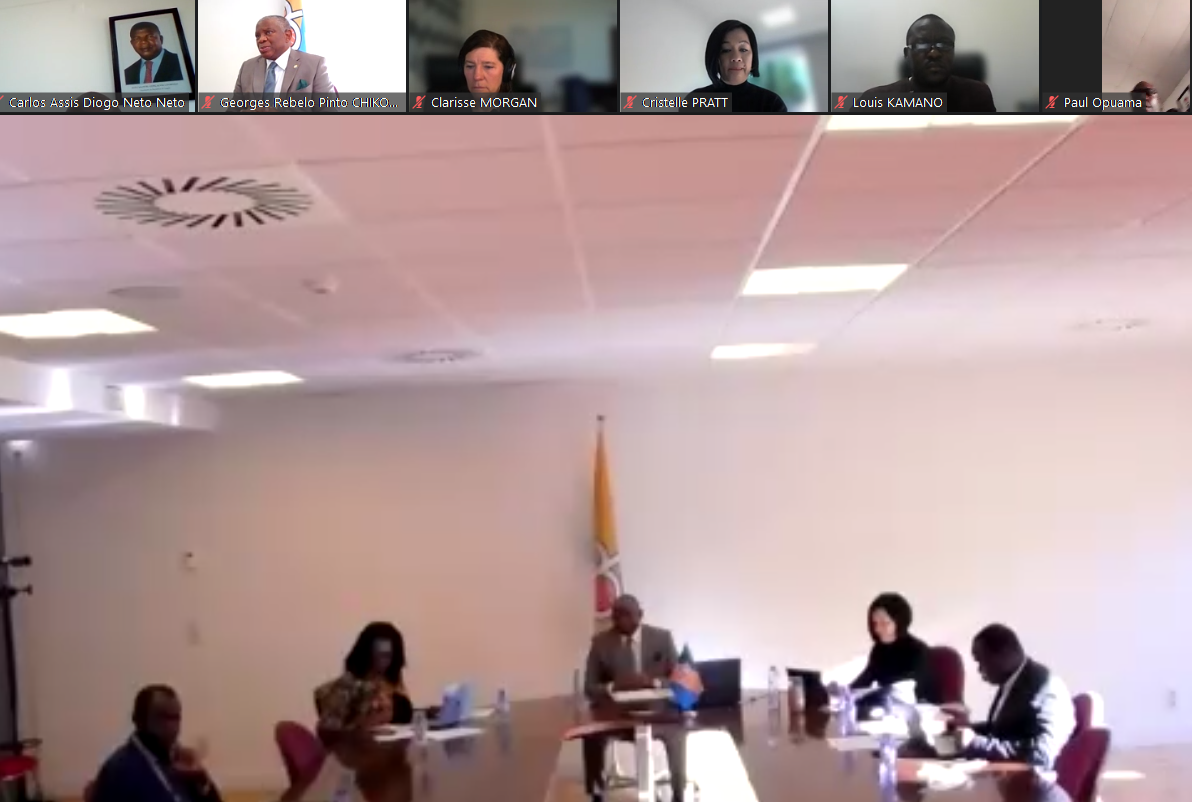OACPS Seminar brings together experts to discuss IUU Fishing within Members of the OACPS
 Brussels, 28 February 2022/OACPS: The Organisation of African, Caribbean and Pacific States (OACPS) convened a virtual seminar on Combatting Illegal, unreported and unregulated (IUU) fishing in Member States of the OACPS to look at the scope of the problem within its Member States, with a view to identifying areas of collaboration and joint actions to combat this serious threat to fisheries and fisheries-dependent communities, marine ecosystems and societies at large.
Brussels, 28 February 2022/OACPS: The Organisation of African, Caribbean and Pacific States (OACPS) convened a virtual seminar on Combatting Illegal, unreported and unregulated (IUU) fishing in Member States of the OACPS to look at the scope of the problem within its Member States, with a view to identifying areas of collaboration and joint actions to combat this serious threat to fisheries and fisheries-dependent communities, marine ecosystems and societies at large.
The key outcomes of the seminar will be tabled for discussion during the 7th Meeting of OACPS Ministers of Fisheries and Aquaculture scheduled to take place in Accra, Ghana from 5-8 April 2022.
IUU fishing is a global challenge with huge implications for the sustainability of fish stocks and for the livelihoods of coastal communities the world over. The fight against IUU fishing cannot succeed without a whole-of-world approach and cooperation between states.
Ending IUU fishing is one of the key targets under SDG 14 (Life Below Water). It had an ambitious deadline of reaching the set target by 2020. Given the challenges of the ongoing COVID19 pandemic this has not been achieved and countries are behind schedule. The seminar questioned what could be done to accelerate actions to eradicate IUU fishing in Member states of the OACPS, while also sharing the lessons learned and identifying policy actions to focus on going forward.
Following a brief welcome address by the Secretary-General of the OACPS, H.E. Mr Georges Rebelo Pinto Chikoti, the Honourable Mrs Mavis Hawa Koomson, Minister for Fisheries and Aquaculture Development of the Government of the Republic of Ghana outlined some of the actions currently being undertaken by Ghana in this regard.
In the first session focused on the state of play of global efforts to combat IUU fishing, Dr. Matthew Camilleri, Food and Agriculture Organization of the United Nations, highlighted a number of legally binding and non-binding instruments that, if implemented effectively by member states, would have a significant impact on the fight against IUU fishing.
Ms. Clarisse Morgan, Director, Rules Division at the World Trade Organization (WTO), spoke of ongoing WTO negotiations on fisheries subsidies, which recognize the need to eliminate the subsidies provided to illegal, unreported and unregulated fishing. The WTO agreement will complement and provide an additional tool to combat IUU fishing.
H.E Amb. Mere Falamaka, the Pacific Islands Forum Permanent Representative to the WTO and the OACPS –who has been supporting members on the fisheries subsidies negotiations at the WTO, highlighted the position of OACPS members on the IUU fishing pillar of the WTO negotiations on fisheries subsidies.
The second panel focussed on trade measures and the lessons learned from the implementation of trade policy measures against IUU fishing. The fight against IUU fishing received new impetus in 2010, when the EU IUU Regulation came into force. The Regulation put in place a unique legal framework that protects the EU market against products originating from illegal fishing activities. The members of the panel looked at how the new legislation contributed to the fight of IUU fishing and improved sustainable use of fisheries resources and ocean governance.
Experts from national and regional organisations shared their experiences, lessons learnt as well as initiatives and strategies to fight IUU fishing, highlighting the specific recommendations for attention and action.
In the final segment of the tightly-packed programme, Ms Beatrice Gorez, Coordinator of the Coalition for Fair Fisheries Arrangements, in the context of sharing civil society perspectives, called for deterrent sanctions to be taken against companies and nationals who ultimately benefit from IUU fishing operations and frequently evade the current system of sanctions.
